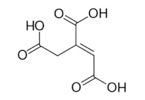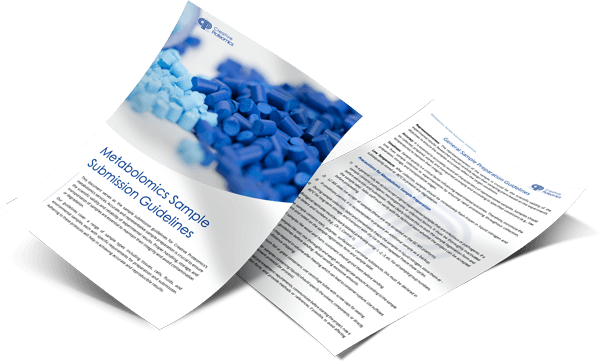Aconitic acid is a kind of organic acid. Cis-aconitic acid and trans-aconitic acid is the two isomers of aconitic acid. Cis-aconitate, which is the conjugate base of cis-aconitic acid, is an important intermediate for the isomerization of citrate to isocitrate in the citric acid cycle. Aconitic acid can be synthesized using sulfuric acid by dehydration of citric acid. It is prepared by thermal dehydration for the first time. Cis-aconitic acid is also known as cis-aconitate, citridinic acid, pyrocitric acid, and achilleic acid or equisetic acid. The molecular formula of isorhamnetin is C6H6O6 and the molecular weight is 174.18g/mol. Cis-aconitic acid can be stored at 4° C for a long time and is dissolved into liquid from solid between 115-120° C. Cis-Aconitic acid is an intermediate produced by the dehydration of citric acid in the tricarboxylic acid cycle. The enzyme named aconitase catalyses the stereo-specific isomerization of citrate to isocitrate in the tricarboxylic acid cycle via cis-aconitate.

Scientists at Creative Proteomics utilize a highly quantitative method with high-performance liquid chromatography (HPLC) for the determination of Aconitic acid levels in various samples, including Tissue, Plant, Bacterial, Cells and more. High-Performance Liquid Chromatography (HPLC) using a differential refractive index detector (RID) for the determination of Aconitic acid levels in a lot of biological samples.
There are some research paper have reported that MttA can transport cis-aconitic acid over citric acid and does not transport itaconic acid. MttA, which is the mitochondrial carrier protein, is involved in the biosynthesis of itaconic acid in Aspergillus terreus. The difference of the expression level of MttA in selected A. niger strains has effect on the secretion of aconitic acid. MttA can be used to transport cis-aconitic acid to the cytosol earlier easier by engineering strategies. The transporting can produce itaconic acid or related metabolites in the cytosol. The microorganism expressed MttA transport protein can produce about 9 g/L of the aconitic acid. The characterization of transport protein function like MttA in vivo and to make use of this protein by metabolic engineering is necessary to create aconitic acid producing strains.
Sample Type
Tissue, Plant, Bacterial, Cells and more
Method
High-Performance Liquid Chromatography (HPLC) using a differential refractive index detector (RID) for the determination of Aconitic acid levels in a lot of biological samples, Tissue, Plant, Bacterial, Cells and more. This Methodology provides accurate, reliable, and reproducible results of Aconitic acid measurement, which enables us to analyze of Aconitic acid levels in vitro and in vivo.
Send us your samples, you will get all information that you need!







